Political and economic change.
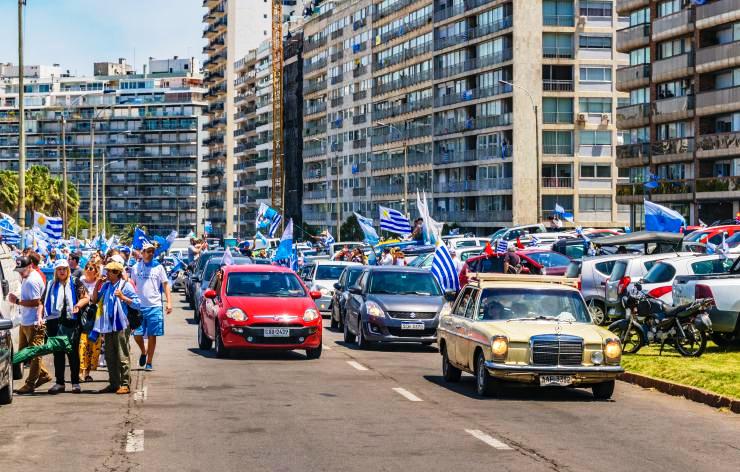
Significant reforms. Opening up to new markets. The presidency of Pepe Mujica.
The victory of the socialist Tabaré Vázquez within the Frente Amplio confederation, achieved in the first round with 50.05% of the votes, followed the wave of political change that had affected the Indio-Latin continent since the end of the 1990s and which was attributable to the activism and initiative of numerous social movements which had the ability both to face the drama of the economic and social crisis and to transform this network into political capital.
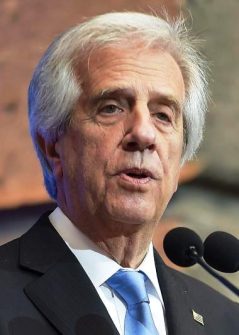
Tabaré Vázquez was the President of Uruguay from 2005 to 2010 and from 2015 to 2020.
CC BY 2.0/Pres. Office
With close reference to the Uruguayan context, the creation of hundreds of family and collective gardens in the early 2000s was emblematic when the economic and social crisis was raging with an unemployment threshold of 20% and with 80% of the popular sectors having no stable employment. The gardens, without a doubt, were an excellent tool for reducing the food crisis of the poorest to the point that they continued to operate even after the economic recovery under the presidency of Tabaré Vázquez.
The new Uruguayan President, finding himself having to face a disastrous situation both from an economic and social perspective, has launched numerous reform programs, including a new tax system aimed at reducing the tax burden on the lowest incomes and increasing it on those medium-high, and a new healthcare system which provided for the establishment of a public healthcare fund fed by contributions from workers and businesses. Vázquez also prepared a social emergency plan based on direct monetary transfers, community socio-educational programs, socially useful works, public health programs targeting specific pathologies, the construction of shelters for the homeless, cards for the purchase of basic food products, assistance programs for the renovation and improvement of precarious homes and incentives for the start-up of new businesses managed by people in conditions of social exclusion. With reference to public education, he has increased the budget considerably, foreseeing extensive computerization programs starting from primary school.
These reforms have certainly significantly reduced the most serious situations of poverty. Proof of this is the decline in absolute poverty which went from 4% in 2005 to 1.6% in 2009.
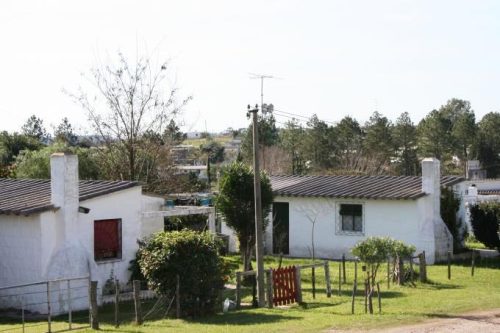
Village in the rural area. File swm.
President Vázquez was also able to contain the country’s public debt, whose fiscal deficit reached 0.5% of GDP during his first three years in government, and then stabilized at 0.8% due to the international crisis of 2008 -2009. Uruguay has also benefited from a new development of the internal market thanks to redistributive policies and a very favourable exogenous macroeconomic cycle determined by the new geopolitical structure which, in addition to favouring the spectacular economic growth of its neighbours Brazil and Argentina – towards which the country directed approximately 70% of its exports – it favoured the presence of new important players in the region, including China in search of new markets to satisfy its growing food needs.
These factors have allowed the country to experience a phase of GDP growth at very high rates (on average 7% per year) and a clear decline in the unemployment rate.
In essence, the economic growth developed by the two great South American giants, Brazil and Argentina, has enabled their considerable economic recovery. It was during the 2009 presidential elections that Uruguay sought the decisive push for a more radical change in the Frente Amplio, which materialized in the candidacy of the leader of the Popular Participation Movement (MPP) Josè Pepe Mujica.
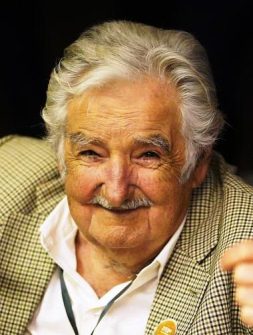
José Alberto “Pepe” Mujica was the president of Uruguay from 2010 to 2015.
CC BY 3.0/Pablo Valadares
A former Tupamaros guerrilla with a stormy past behind him and a long jail term of 14 years, he regained his freedom thanks to the amnesty decreed in 1985 by the restored Uruguayan Parliament, Pepe Mujica, together with other comrades, joined the left-wing alliance Frente Amplio (FA) to continue the political battle in the resurrected democratic party system. In 1989, together with other left-wing forces, he promoted the internal current “Popular Participation Movement” (MPP); in 1995 he became the first deputy of the Tupamaros; in 2005 his party received the most votes in the FA and he became Minister of Agriculture in the first FA government of Tabaré Vàzquez. His position in such a prestigious ministry for the country’s economy offered him the opportunity to create a network of consensus among farmers and trade associations, useful for consolidating the basis for his subsequent candidacy for the presidency. His period as president made him particularly popular, also at an international level for his vision of life, for the frankness with which he expresses it, as well as for his attitude of simplicity which acted as a counterbalance to the arrogance of established power, becoming at the same time the stand-in for all the evils that are borne by professional politicians, such as to nominate him as a model of a “President for export”, despite his radical past, his membership of the MPP and the image around which he had the ability to build his image.
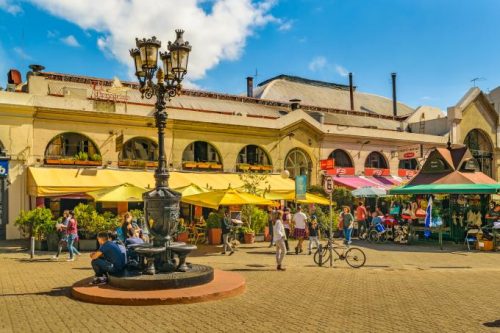
A traditional food market at Ciudad Vieja district in Montevideo city. Shutterstock/ DFLC Prints
From a governmental point of view, his action is characterized by reforms that have caused a particular stir, including those relating to the decriminalization of abortion, the introduction of gay marriage and the liberalization of marijuana consumption.
Tabaré Vazquez returned to office in the 2014 presidential election and lasted until 2020, thus concluding a 15-year cycle of the Frente Amplio government. Despite their common political affiliation, Vazquez represented a break with the course undertaken by the Mujica presidency both domestically and internationally. However, in these fifteen years, Uruguay has had the opportunity to establish itself politically and economically in the region, boasting the highest GDP per capita and economic growth of 4.3%. Furthermore, on an international level, it was the only left-wing government capable of maintaining stable diplomatic relations with the United States and good relations also with Macri’s Argentina, despite profound political differences. But unlike Muijca, Vazquez broke that privileged channel that united his predecessor to the leaders of Bolovarism Maduro, Morales and Ortega. (Open Photo: A political act in the streets of Montevideo.123rf)
(F.R.)



